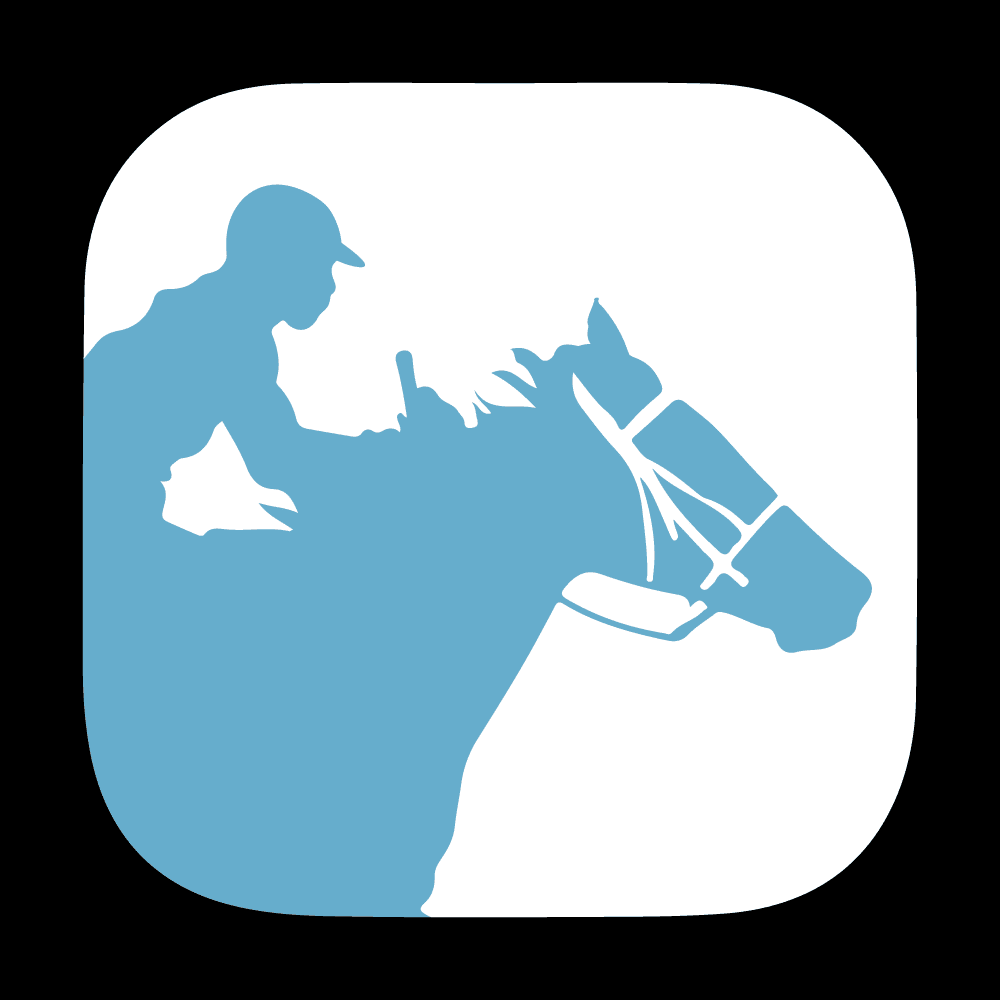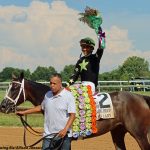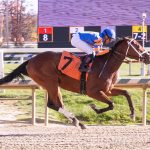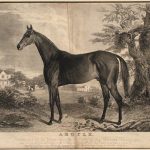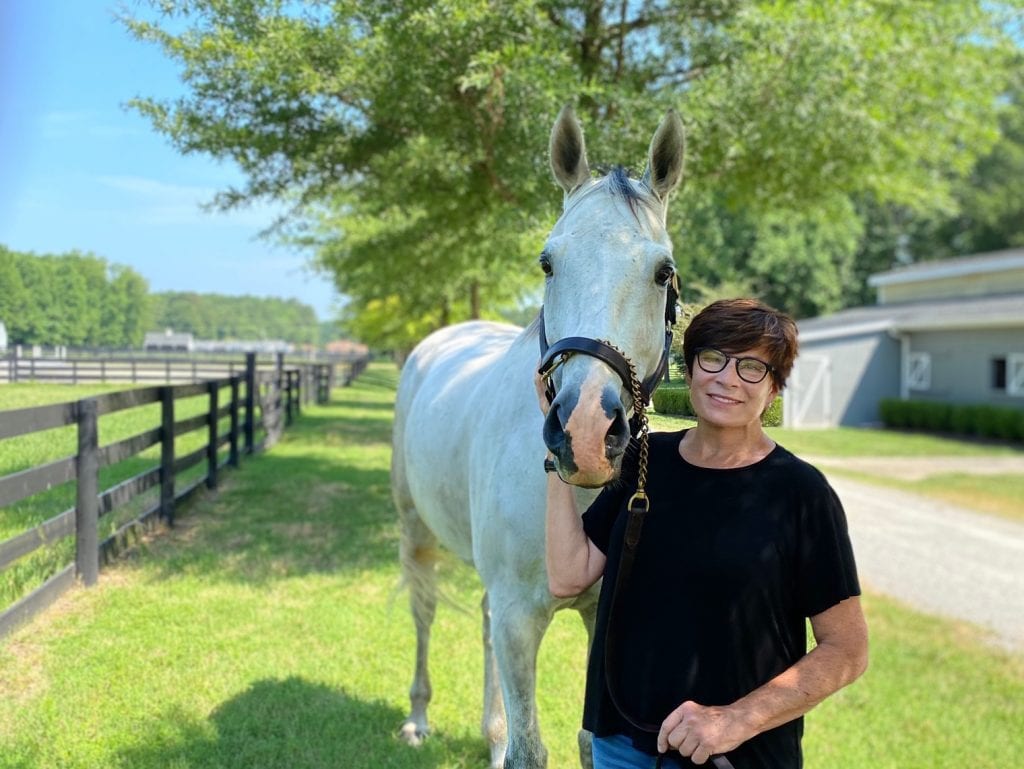
Marsha Hudgins, owner and CEO of Hudgins Contracting Corporation, has been appointed newest Commissioner of the five person Virginia Racing Commission (VRC), joining Chairman D.G. Van Clief Jr., Vice-Chairman Stuart Siegel, J. Sargeant Reynolds, Jr., and Stephanie Nixon.
The VRC’s mission is to promote, sustain, grow and control a native horse racing industry with pari-mutuel wagering by prescribing regulations and conditions that command and promote excellence and complete honesty and integrity in racing and wagering.
Hudgins originally questioned whether she had the qualifications necessary to serve on the Commission board. She has been a longtime owner and breeder of sport horses like hunters and jumpers but had not been involved in horse racing per se. “I didn’t feel I was qualified and didn’t think I could be of any benefit to the industry,” she said. “I thought there were plenty of others who had longer and stronger backgrounds in the sport who could bring lots more to the table.”
After initially declining consideration, she began having conversations with people in the industry. “I still had doubts but knew upcoming years would be pivotal for racing in Virginia with historical racing, OTBs, the return of Colonial Downs and casinos. I started thinking that someone who is behind the industry, has business experience elsewhere and understands how business can impact the state should have their voice heard.”
Hudgins ended up throwing her hat in the ring, was appointed by the Governor on May 19 and attended her first VRC meeting as a Commissioner on June 25.
Her horse farm is in Suffolk and she has attended many equine shows and competitions over the years in Middleburg, Charlottesville and The Plains among others. In addition to the Hampton based business she runs — her late husband Lester started the contracting company 40 years ago — Hudgins went to college for Physical Therapy and has more than a passive understanding of injuries, treatments and more in-depth knowledge of medications and breakdowns. She has practiced for 35 years.
She also earned a Masters of Business Administration from Old Dominion University. She has spent almost thirty years consulting with small business start-ups as well as large corporate entities across the region in targeting and managing growth opportunities. The degrees and experience came in handy, especially when her husband passed away somewhat unexpectedly in 2011 from cancer at the age of 69.
“He ran a general contracting business when I met him in the early ’80’s and he pretty much built buildings,” she said. “I love business though. I’d give him occasional advice on the business and he’d usually just give me a look or roll his eyes. Then one day, he said some of the things I suggested were actually right,” she chuckled. “The joke in our family was that he was the businessman, but I had the MBA.”
Hudgins said her husband did not make any plans for later in life and thought he would keep the business going until he died. When he was sick, he told her she would have to take over the company. “I said, ‘excuse me, say that again’. He said it was important for him, but especially for all the employees that had been with him for 15, even 20 years,” she said. “At that time, the local economy was still depressed and it was a struggle. He was concerned about the older employees that were in their 50’s. It was recession time still and companies weren’t hiring. He was fearful that if the company didn’t continue, they would struggle finding a job elsewhere due to their age and as he said, ‘be put out to pasture’.”
“It hit home hard and it happened so fast,” she continued. “I was responsible for the financial health of the business, the ups and downs, and for all the people.” Initially, she thought about selling. “The employee that was running the business on an interim basis was interested in buying it but he and I had a different viewpoint on what the company culture should be and how people should be treated. He ended up resigning and at that point, I made up my mind to take over.
Hudgins wasn’t an engineer and admitted she was never going to know what her work force knew, but made up her mind to learn about the construction field and all the projects her firm was involved in.
“I knew the key was to get the best employees I could find based on my vision of teamwork, and not the top down management structure. I found people in the industry that I knew would be a good fit. I had to almost become a cheerleader to get good people to come on board and take chance with us. We slowly and steadily evolved with these new folks, and employees that had been there for a while, though a lot of hard work. It was a journey but it was very rewarding. I was able to treat my older employees as if nothing had even disturbed the flow of their work. I got to see them retire when they planned to retire and attend their going away parties. And I’ve seen young people in their 30’s come in and seen their enthusiasm take the company to where it is today.”
Last summer, Hudgins had her first experience as a thoroughbred race horse owner, in a sense. She was part of the Virginia Racing Club, a collaboration of 30-40 fans from all over the state, who each invested a modest fee to own a share of two horses that raced at Colonial Downs last summer. Ferris Allen trained them both — Speed App and Fly E Dubai.
On opening day’s card — the first one held at New Kent since 2013 — Speed App raced, and won. “There’s a saying in sport horses that if your foal is a winner and you strike gold with it, get out while you can,” joked Hudgins. “You can’t understand how rare that is and how hard it is to replicate. The experience wasn’t about the money so much as it was a chance to go to the races with like minded people and cheer for your horse. The cost was reasonable to get in and it was a wonderful opportunity. And shock of all shocks is that we made a little money in addition to the entertainment.”
At her first Racing Commission meeting last month, Hudgins witnessed firsthand how industry stake holders can band together. She came away impressed. “In my business, problem solving is the biggest thing you can to do to have a view of the future. You need to work in a collaborative way with other groups to have a common goal in which we all share. That’s what I saw at the meeting. Groups with different goals coming together to figure out a way how Virginia is going to move forward. I was amazed. It bodes well for the future of our industry.”
“I see horse racing as a driving economic force in Virginia because it is our heritage,” she continued. It goes back to the very beginning here. I don’t think there’s anything more beautiful than a thoroughbred horse. Anybody that has an interest and love for the sport can get involved. Racing is like my business. We have people in the field that work with heavy machinery and lay piping, are very good at what they do and earn a good living. It didn’t take a college degree. It’s the same in racing. You need education of a different sort. You need to love working outside and with animals. We have an entire industry that doesn’t go into office buildings.”
LATEST NEWS

